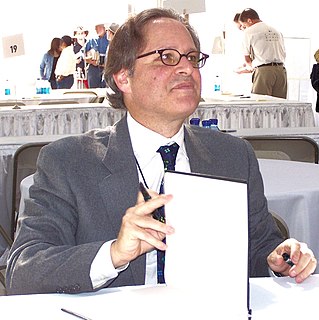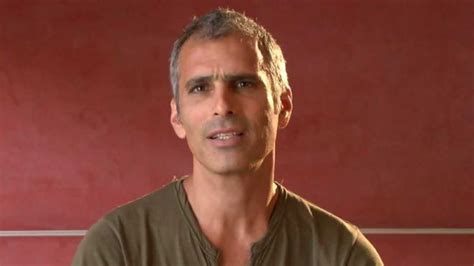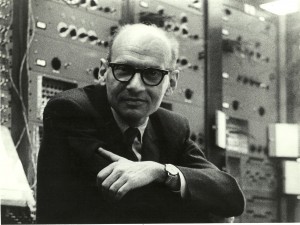Top 599 Intellectually Quotes & Sayings - Page 9
Explore popular Intellectually quotes.
Last updated on December 24, 2024.
I have a great affection for people who are intellectually engaged with the world, and who don't treat everything superficially. And I think, when people talk about nerdiness, what they're really talking about is smart people who who are trying to think hard about the world. And I don't think that's an insult, I think that's a great thing.
It really did take Billy Lucas's suicide to wake me up to, kind of, the damage of the success of the LGBT civil-rights movement - higher-profile LGBT people - has done to LGBT youth who are trapped out there in those shitholes. But I don't think we need Pride. I am still opposed, on philosophical grounds, to the flap of the rainbow windsock and the damage that does to us intellectually.
There's a kind of Ah-ha! Somebody at least for a moment feels about something or sees something the way that I do. It doesn't happen all the time. It's these brief flashes or flames, but I get that sometimes. I feel unalone—intellectually, emotionally, spiritually. I feel human and unalone and that I'm in a deep, significant conversation with another consciousness in fiction and poetry in a way that I don't with other art.
Remember, intelligence is not part of the mind. Intellect is, but intelligence is not; hence, the intellectual is full of mind but in life he behaves very unintelligently. He has a certain expertise, he is trained intellectually to, do a certain thing, his mind is functioning like a computer. But life is not one-dimensional, you cannot exhaust it in one expertise; it is multi-dimensional.
Those who have chosen the path of least resistance in life, who cannot bear to bring themselves to make a stern value-judgment in criticism of their own most intimate feelings, achieve what they deserve: not self-understanding but radical self-superficialization, not a discovered but a self-ascribed identity that explains nothing, reveals nothing, means nothing, and ultimately accomplishes nothing culturally or intellectually.
I think serious research tends to be associated with higher academic quality, more prestige, more resources, and even, heaven help us, better teaching, to a greater extent than you might think. Folks who don't have an active intellectual life become, though the long years of just teaching, less intellectually alive and exciting.
I also knew that if people have a position on something and you try to argue them into changing it, you’re going to strengthen that position. If you want to change people’s ideas, you shouldn’t try to convince them intellectually. What you need to do is get them into a situation where they’ll have to act on ideas not argue about them.
A multidisciplinary study group ... estimated that it would be 1980 before developments in artificial intelligence make it possible for machines alone to do much thinking or problem solving of military significance. That would leave, say, five years to develop man-computer symbiosis and 15 years to use it. The 15 may be 10 or 500, but those years should be intellectually the most creative and exciting in the history of mankind.
The growing complexity of science, technology, and organization does not imply either a growing knowledge or a growing need for knowledge in the general population. On the contrary, the increasingly complex processes tend to lead to increasingly simple and easily understood products. The genius of mass production is precisely in its making more products more accessible, both economically and intellectually to more people.
I tried not to think about my life. I did not have any good solid plans for it long-term - no bad plans either, no plans at all - and the lostness of that, compared with the clear ambitions of my friends (marriage, children, law school), sometimes shamed me. Other times in my mind I defended such a condition as morally and intellectually superior - my life was open and ready and free - but that did not make it less lonely.
The university has become so stultified since the sixties. There is so much you can't do at the university. You can't say this, you can't do that, you can't think this, and so forth. In many ways, I'm free to range as widely as I do intellectually precisely because I'm not at a university. The tiresome Chicanos would be after me all the time. You know: "We saw your piece yesterday, and we didn't like what you said," or, "You didn't sound happy enough," or, "You didn't sound proud enough."
Milton Katselas said, "Who are you to look down your nose at Anna Magnani and Maureen Stapleton? Who do you think you are?" I was doing this kooky meditation at the time called inner-guide meditation, where you go into a cave and you have a guide, and you fly around. So I said to my inner guide, "Take me to the energy that's blocking me from accepting my casting" - because I understood it intellectually, but I didn't want to do it in my heart.
Nothing enrages me more than when people criticize my criticism of school by telling me that schools are not just places to learn maths and spelling, they are places where children learn a vaguely defined thing called socialization...I think schools generally do an effective and terribly damaging job of teaching children to be infantile, dependent, intellectually dishonest, passive and disrespectful to their own developmental capacities.
I've worked in the factories of this land, and I've thought freely and creatively. And I think that that has greatly enriched my capacity to abstract intellectually. The experience of being with workers, my encounters with management and my recognition of its foibles, my personal encounters with American industrial efficiency, my military experience - all of these things packaged together have greatly enriched my reading and my understanding, and I've written with what I hope is a reasonable fluency of style that is much more expressive than the academic stuff.
The United States is broke — fiscally, morally, intellectually — and the Fed has incited a global currency war Japan just signed up, the Brazilians and Chinese are angry, and the German-dominated euro zone is crumbling that will soon overwhelm it. When the latest bubble pops, there will be nothing to stop the collapse. If this sounds like advice to get out of the markets and hide out in cash, it is.
Now, the topic of religion seems much more complex, and I have a more complex relationship with it myself because I love religious music. I often find myself wanting to be in a religious state of mind even though I don't intellectually believe it. I want to go to that place emotionally. So it doesn't feel like something that I really want to debunk in that way. It's just not where my interests lie at the moment.
I am an atheist, out and out. It took me a long time to say it. I've been an atheist for years and years, but somehow I felt it was intellectually unrespectable to say that one is an atheist, because it assumed knowledge that one didn't have. Somehow it was better to say one was a humanist or agnostic. I don't have the evidence to prove that God doesn't exist, but I so strongly suspect that he doesn't that I don't want to waste my time.
I do not believe you could intellectually comprehend all the different forces playing upon us. Yet what you can do is become very silent, so you are not distracted and then begin to feel how these forces playing upon us are affecting us, and according to how we feel, we can then make intelligent decisions as to how far, how deep, how much, we explore in any pose.
I think we have a free will, and at the same moment we don't. We have to live with that. It doesn't make sense intellectually, but that's because our intellect is always trying to come up with a logical, rational explanation for things. To do that, it puts labels on things. But once you label something, you've got twoness. You've got the label, and you've got what you're labeling. And there is only oneness in the universe, even though we artificially believe in twoness.
The Victorians have been immoderately praised, and immoderately blamed, and surely it is time we formed some reasonable picture of them? There was their courageous, intellectually adventurous side, their greedy and inhuman side, their superbly poetic side, their morally pretentious side, their tea and buttered toast side, and their champagne and Skittles side. Much like ourselves, in fact, though rather dirtier.
We must encourage those who earn less than $200 per month and cannot afford to nurture and educate many children never to have more than two… We will regret the time lost if we do not now take the first tentative steps towards correcting a trend which can leave our society with a large number of the physically, intellectually and culturally anaemic.
Totalitarianism, however, does not so much promise an age of faith as an age of schizophrenia. A society becomes totalitarian when its structure becomes flagrantly artificial: that is, when its ruling class has lost its function but succeeds in clinging to power by force or fraud. Such a society, no matter how long it persists, can never afford to become either tolerant or intellectually stable.
Confronting the intolerable should be challenging and upsetting. Who could read the testimonies of Primo Levi and not feel intellectually and emotionally exhausted? Or Martin Luther King Jr.'s words, not to mention those of Malcolm X? It is the conditions that produce violence that should upset us ethically and prompt us to act responsibly, rather than to capitulate to a privatized emotional response that substitutes a therapeutic language for a political and worldly one.
I get so ticked off at you intellectually lazy people who think that the government is God, that every dollar they get or spend is somehow sacred. There is more fraud and waste and misuse. If the federal government were held accountable to the law as corporations are held accountable, half the federal government would be in prison.
God is one among several hypotheses to account for the phenomena of human destiny, and it is now proving to be an inadequate hypothesis. To a great many people, including myself, this realization is a great relief, both intellectually and morally. It frees us to explore the real phenomena for which the God hypothesis seeks to account, to define them more accurately, and to work for a more satisfying set of concepts.
J.C. [Chandor] was the kind of energy we were looking for, so we decided to get behind it with all of our effort. That was the beginning of our relationship with first-time feature directors, and that's when it became really important to us, watching them thrive and grow in a creative environment in which you can do that was really key. Also his work checked all the boxes, because it was socially relevant and intellectually driven, and creatively exciting.
Television is a constant stream of fact, opinions, lies, moral dilemmas, plots: an infinitely complex and sophisticated torrent of information. How could it not make you cleverer? The only people who ever thought television rotted the brain and made kids dumb were those with a vested interest in other ways of learning, or those who were intellectually insecure, usually about books.
In my mind, the purpose of education is to enable human beings to develop to their full potential, intellectually and spiritually. That means that students have to be empowered to pursue self-knowledge and the skills that will help them be of service to their fellow human beings. Education should encourage people to develop their curiosity about life; above all, it should not trivialize either the students or their lives.
I can't believe that people really prefer to go to the concert hall under intellectually trying, socially trying, physically trying conditions, unable to repeat something they have missed, when they can sit at home under the most comfortable and stimulating circumstances and hear it as they want to hear it. I can't imagine what would happen to literature today if one were obliged to congregate in an unpleasant hall and read novels projected on a screen.
I'm for higher standards measured in an intellectually honest way, with abundant school choice, ending social promotion. And I know how to do this because as governor of the state of Florida I created the first statewide voucher program in the country, the second statewide voucher program, in the country and the third statewide voucher program in the country.
Without seeing any reason to believe that women are, on the average, so strong physically, intellectually, or morally, as men, I cannot shut my eyes to the fact that many women are much better endowed in all these respects than many men, and I am at a loss to understand on what grounds of justice or public policy a career which is open to the weakest and most foolish of the male sex should be forcibly closed to women of vigor and capacity.
Diane Keaton, I've worked with her as a director, and I think she's a really intelligent woman. I like the fact that the things that make her feel beautiful are more than just her face; it's who she is, and I live by that same theory. There are things I want to achieve in my life intellectually that make me feel beautiful.
For the child whose impulsiveness is indulged, who retains his primitive-discharge mechanisms, is not only an ill-behaved child but a child whose intellectual development is slowed down. No matter how well he is endowed intellectually, if direct action and immediate gratification are the guiding principles of his behavior, there will be less incentive to develop the higher mental processes, to reason, to employ the imagination creatively. . . .
We are particularly proud of our youth. I think we have never had a stronger generation of young men and women than we have today. For the most part they are true to the faith of their forebears. Surrounded by forces that would pull them down and tremendous pressures to pull them away from time-tested virtues, they are going forward with constructive lives, nurturing themselves both intellectually and spiritually. We have no fears or doubts concerning the future of this work.
We must express the view, based on our empirical observations, that a substantial number of journalists are ignorant, lazy, opinionated, and intellectually dishonest. The profession is heavily cluttered with aged hacks toiling through a miasma of mounting decrepitude and often alcoholism, and even more so with arrogant and abrasive youngsters who substitute 'commitment' for insight. The product of their impassioned intervention in public affairs is more often confusion than lucidity.
I think that tri [to Ram Bahadur Bomjon] was the first time I'd even seen something that made me think, or really feel: "Ah, I don't know what's really going on in the world - I think I do, and it feels like I do, but whatever is really going on is, de facto, beyond the scope of my comprehension - the best we can do is look for hints." I'd known that intellectually before but that was the first time I really believed it viscerally.
To do a portrait today, I decide how close I can get to my subject. First, of course, mentally or intellectually, then in the viewfinder. Music cues the subject and me when to shoot. The music played during a photography session is most important - stimulating to the subject and to me. As in a film, the music builds or becomes quiet, romantic; just one note sets the actor up to emote for his audience. I want a reciprocal portrait, not a bureaucratic one
I am relieved that, in my own teaching, I don't have to moderate between high stake teaching and education for the virtues. If I did, I would give students the tools to take the tests but not spend an inordinate amount of time on test prep nor on 'teaching to the test.' If the students, or their parents, want drill in testing, they'd have to go elsewhere. As a professional, my most important obligation is to teach the topic, skills, and methods in ways that I feel are intellectually legitimate.
I suspect the I.Q., SAT, and school grades are tests designed by nerds so they can get high scores in order to call each other intelligent...Smart and wise people who score low on IQ tests, or patently intellectually defective ones, like the former U.S. president George W. Bush, who score high on them (130), are testing the test and not the reverse.
I wanted other women to know there's no shame in talking about it. People don't say they're pregnant until the second trimester. I intellectually understand that you don't want the whole world to know your business, but at the same time what does that mean? You don't tell your employers you're pregnant, but then when you miscarry no one knows you miscarried. Miscarrying is a horrible painful event.
It as an argument between the world of emotion versus the world of the intellect. It's the idea that you can suppress a person's mind and a person's experiences, mentally, psychologically and intellectually, but you can't completely quiet them to the point of dormancy and the emotionally life a person. You still have the heart and what the heart remembers and what the heart experiences. And even that isn't important that that comes across.
I had a lot of fantasies about being an architect when I was young, and I think I still do. On a visceral level, I'm very intellectually and emotionally attracted to acknowledging how space functions in our lives, both in terms of pleasure and in terms of control, and in terms of all those factors that form a life. I'm also very anxious and maybe repulsed by how superficial that whole dialogue can become.
Scientists, therefore, are responsible for their research, not only intellectually but also morally. This responsibility has become an important issue in many of today's sciences, but especially so in physics, in which the results of quantum mechanics and relativity theory have opened up two very different paths for physicists to pursue. They may lead us - to put it in extreme terms - to the Buddha or to the Bomb, and it is up to each of us to decide which path to take.
I think one of the problems [with raising intelligent children] is compulsory schooling...and that children are sitting there and they are taught and told what to believe. They are passive from the very beginning, and one must be very, very aggressive intellectually to have a high IQ [...] the child is taught. Right from the beginning, it's a passive process. He or she sits there, and they simply try to believe everything they're told.
I am neither Christian enough nor charitable enough to like anybody just because he is alive and breathing. I want people to interest or amuse me. I want them fascinating and witty or so dul as to be different. I want them either intellectually stimulating or wonderfully corny; perfectly charming or hundred percent stinker. I like my chosen companions to be distinguishable from the undulating masses and I don't care how.
I went back to a small town in Poland where my dad grew up. It was a very traumatic experience for me as a young man to know that my father's family were killed by Nazis, killed by Hitler. And that left, you know, if not intellectually, at least an emotional part of me which said, God, we have got to do everything we can to end this kind of horrific racism or anti-Semitism. And I have spent much of my life trying to fight that.
The kind of people that all teams need are people who are humble, hungry, and smart: humble being little ego, focusing more on their teammates than on themselves. Hungry, meaning they have a strong work ethic, are determined to get things done, and contribute any way they can. Smart, meaning not intellectually smart but inner personally smart.
The notion of travelling to far places in order to study alien peoples and cultures, is unique to Western man; it springs from the predatory genius of the Greeks; no primitive peoples have ever come to study us. This is, on the one hand, a disinterested, intellectually inspired impulse. It is one of our glories. But it is, on the other, part and parcel of exploitation. [] The Western obsession with inquiry, with analysis, with the classification of all living forms, is itself a mode of subjugation, of psychological and technical mastery.
Fear and euphoria are dominant forces, and fear is many multiples the size of euphoria. Bubbles go up very slowly as euphoria builds. Then fear hits, and it comes down very sharply. When I started to look at that, I was sort of intellectually shocked. Contagion is the critical phenomenon which causes the thing to fall apart.
It is too early to feel fear of the future when one is under 30, and too late after that. What I mean is that one must never allow fear to become one's permanent sense of life. The important thing is to prepare yourself intellectually to deal with whatever circumstances you may encounter, which requires that you define your values fully, clearly and rationally -- and never betray them.
I want to live darkly and richly in my femaleness. I want a man lying over me, always over me. His will, his pleasure, his desire, his life, his work, his sexuality the touchstone, the command, my pivot. I don’t mind working, holding my ground intellectually, artistically; but as a woman, oh, God, as a woman I want to be dominated
Now, we don't really believe these things - intellectually we know better - but we believe them viscerally, and live by them, and they cause us to prioritize our own needs over the needs of others, even though what we really want, in our hearts, is to be less selfish, more aware of what's actually happening in the present moment, more open, and more loving.

























































